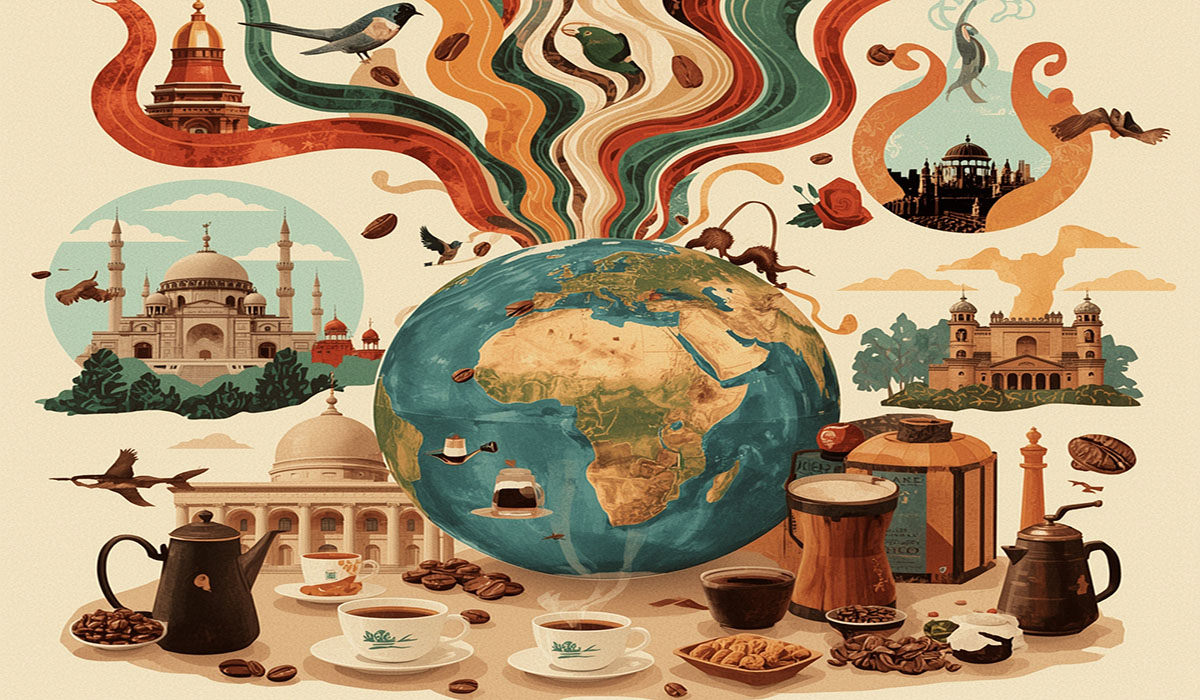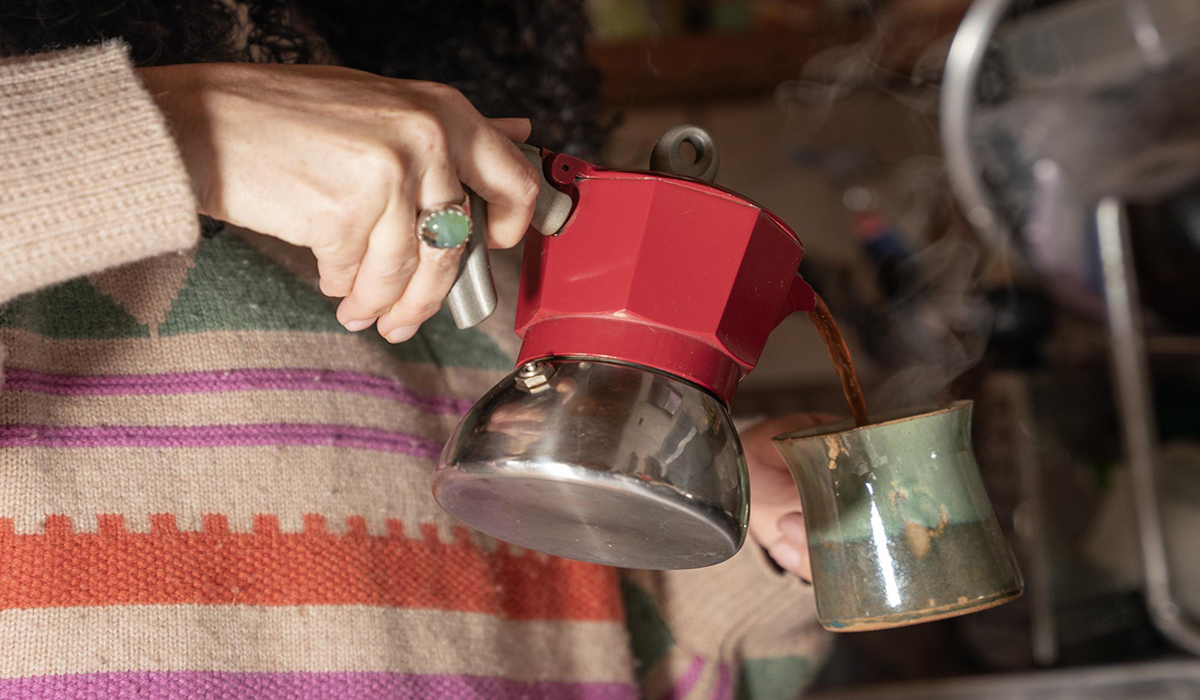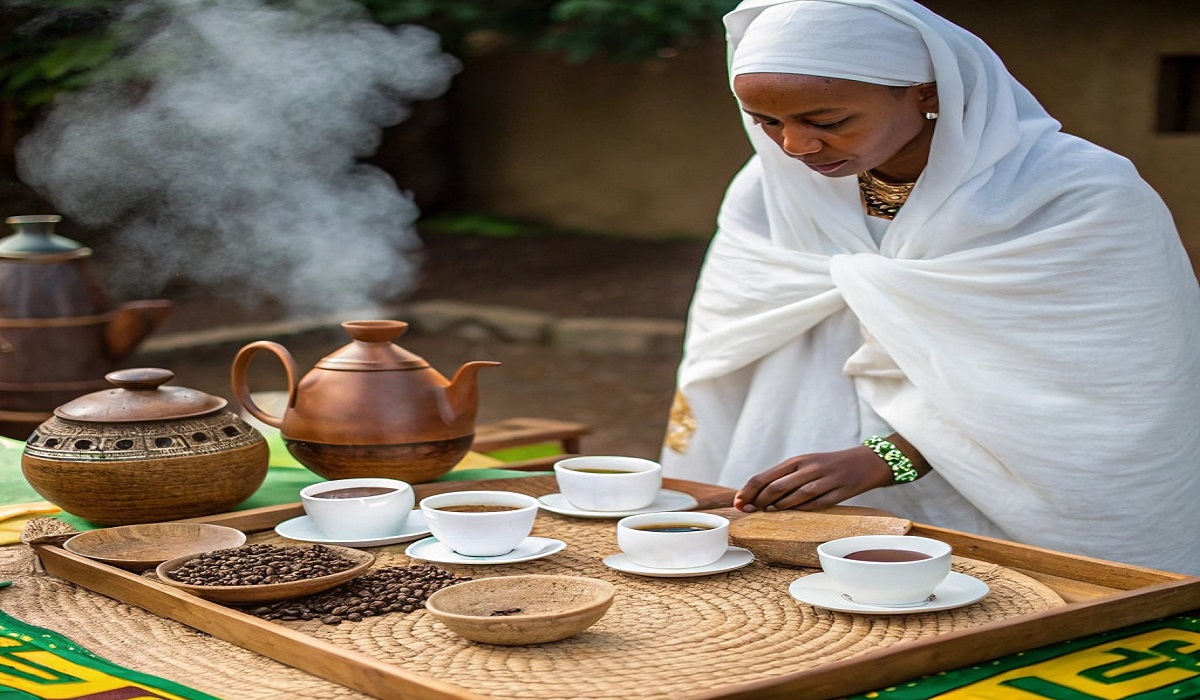Coffee Traditions and Rituals Around the World

Coffee is more than just a beverage; it is a symbol of culture, tradition, and human connection across the globe. Every cup of coffee tells a story—of people, rituals, and ways of life. In this article, we explore the diverse coffee traditions from around the world, embarking on a journey through the rich and varied customs of coffee drinking.
Coffee Rituals Around the World | Coffee Traditions in Different Cultures
Coffee is one of the most beloved drinks worldwide, valued not only for its unique aroma and flavor but also for the role it plays in cultures, traditions, and social interactions. In many countries, coffee drinking is an essential part of daily life, family traditions, or even formal ceremonies.
Coffee traditions around the world reflect the cultural diversity of nations. From Arabic coffee in the Middle East to iced Vietnamese coffee in Asia, each culture has its own distinctive way of preparing and enjoying this beverage.
Coffee is a global drink that brings people together—a reason to socialize, converse, and savor the present moment. In this article, we’ll explore some of the most fascinating coffee traditions across the globe, from the Middle East and Asia to Europe and the Americas.
Middle Eastern Coffee Traditions | Arabic Coffee and the Ritual of Hospitality
Coffee traditions is deeply embedded in the culture and hospitality of Middle Eastern countries. One of the most iconic traditions here is Arabic coffee, also known as “Turkish coffee” in some contexts.
In Middle Eastern culture, coffee represents more than a warm beverage—it is a symbol of respect, generosity, and social bonding. The coffee-drinking ritual in this region has centuries-old roots and is a vital part of Arab and Islamic hospitality.
In Gulf countries such as Saudi Arabia, the UAE, Qatar, and Kuwait, Arabic coffee—also referred to as “Gahwa” or “Khaleeji coffee”—is prepared in a unique manner. The beans are lightly roasted, ground, and often mixed with cardamom, sometimes saffron, cloves, or cinnamon, then boiled in a traditional pot called a “dallah” or “jezve.”
Key customs include:
- Arabic coffee is typically brewed light and served without sugar, as it is accompanied by dates, sweets, or nuts to balance its bitterness.
- It is served in small cups (called “finjan”) filled only one-third, and always offered with the right hand.
- Guests can signal they’ve had enough by gently shaking their cup; otherwise, it will be refilled.
In Bedouin and Arabian traditions, coffee preparation is a sacred act of hospitality. Hosts often roast and grind the beans in front of guests to demonstrate respect and warmth.
Coffee also plays a central role in tribal gatherings, mourning rituals, and celebrations. In some areas, the first cup is reserved for the head of the family or the most honored guest—serving order carries meaning.
Arabic coffee is strong, unfiltered, and bitter, often symbolizing the host’s esteem. In certain cultures, the number of times the cup is refilled holds symbolic significance. Coffee reading, or tasseography—interpreting the patterns left by grounds in the cup—is a popular and entertaining tradition in Turkey, Lebanon, Iran, and parts of the Arab world.
After drinking, the cup is turned upside down on the saucer, and the residue is read to predict the future—a fun, social ritual among friends.
Coffee traditions in Asia | Sweet, Traditional, and Unique
Though tea is the dominant beverage across most of Asia, coffee has carved out a special place of its own.
- One of Asia’s most distinctive coffees is Vietnamese iced coffee—Cà Phê Sữa Đá—made with a small metal drip filter called a “phin.” The coffee slowly drips over a layer of sweetened condensed milk and is then served over ice, blending bitter strength with creamy sweetness.
- In Japan, pour-over and siphon brewing methods are executed with meticulous care. While the traditional tea ceremony is centered around matcha, the same spirit of ritual and mindfulness extends to coffee preparation.
Matcha—a powdered green tea—is used in an elaborate ceremonial process rooted in Zen, designed to bring peace, focus, and presence to the moment.
- In Malaysia and Singapore, a popular drink called Kopi is served. This is a unique type of instant coffee roasted with butter or coconut oil, creating a deep, caramelized flavor that sets it apart.
Coffee Traditions in Europe | From Italian Espresso to Parisian Cafés
Europe is home to the modern café culture. Sipping coffee at cozy street-side cafés is an essential part of life, especially in France.
- Historically, many French philosophers, artists, and intellectuals gathered for hours in cafés to share ideas. Coffee in France is often served as a strong espresso or café au lait (with milk).
- Italy is perhaps the most iconic coffee culture in Europe, credited with popularizing espresso, cappuccino, and latte. Italians enjoy coffee between meals, gathering around small café tables for conversation and an intense espresso.
- In Sweden, the concept of Fika—a coffee break with friends or colleagues—is a cherished daily ritual. It’s usually accompanied by cinnamon buns (kanelbulle) or pastries, and celebrated as a moment to pause and connect.
- In Greece, frappé is the go-to coffee—a chilled, foamy instant coffee made with water, sugar, and ice, typically sipped with a straw. It’s a symbol of Greek leisure and enjoying life at a slower pace.
Coffee Traditions in the Americas | Modern Coffee Culture and Creative Drinks
In the United States, Coffee traditions has been shaped by the rise of chain cafés and creative beverages like the Frappuccino. Coffee shops offer relaxed, cozy environments for socializing, working, or relaxing.
American coffee is often served in large “to-go” cups, with milk and a variety of flavorings such as caramel, vanilla, or cinnamon.
For many Americans, coffee is an essential part of breakfast. One of the most famous beverages to emerge from the U.S. is the Frappuccino—a blend of espresso, milk, ice, and flavorings, perfect for hot days and enjoyed as a frozen treat.
Coffee Traditions in Africa | The Coffee Ceremony of Ethiopia
The Birthplace of Coffee: Ethiopia
Ethiopia is widely recognized as the birthplace of coffee. According to legend, a shepherd named Kaldi noticed his goats became energized after eating berries from a particular plant—this was the coffee plant, which would later become a global commodity.
The Ethiopian Coffee Ceremony
The most emblematic aspect of Ethiopian coffee culture is the traditional Coffee Ceremony—a rich, symbolic ritual, usually led by the women of the household, that fosters community and social bonding.
Ceremony steps:
- Green coffee beans are roasted over fire (live roasting)
- Beans are ground manually with a mortar
- Coffee is brewed in a traditional pot called a jebena
Coffee is served in three rounds:
- The first: Abol(the strongest)
- The second: Tona(milder)
- The third: Baraka(meaning “blessing”)
Each round represents respect, and drinking all three symbolizes acceptance of the host’s hospitality.
Coffee as a Social Tool
In Ethiopian culture, an invitation to a coffee ceremony is equivalent to an invitation to talk, make peace, and build relationships. The ritual is common in homes, markets, villages, and even during religious occasions.
African Coffee Flavor Profiles
African coffees, especially Ethiopian varieties like Yirgacheffe and Sidamo, are known for their fruity, floral aromas and bright acidity—distinctive, complex flavors appreciated by coffee connoisseurs worldwide.
Coffee Traditions in Iran
Turkish-style coffee and the traditional ghahveh-khaneh (coffeehouse) culture are vital aspects of Iran’s heritage. These spaces historically served as gathering places for men to play board games, listen to storytellers, and socialize. Although traditional coffeehouses are less common today, they can still be found in bazaars and historic centers.
Serving strong, bitter Turkish coffee as a gesture of hospitality is a symbol of Iranian generosity. Modern cafés have also flourished in major cities. Today, prominent Iranian coffee companies such as Parto Padideh operate in the domestic market, producing high-quality local and international coffee products that meet global standards.
Conclusion | One Cup, a Thousand Cultures
Coffee is a global beverage that offers more than just caffeine—it carries cultural and social energy. Despite differences in rituals and traditions, coffee connects people around the world.
Whether sipping espresso in a Parisian café, reading fortunes in Istanbul, or watching a matcha ceremony in Tokyo, you are part of a shared global heritage.
Coffee traditions reflect the deep bond between this drink and human life, culture, and history. From tiny Arabic cups to tall American mugs, coffee is a bridge across nations and generations. Every cup tells a story—of connection, respect, creativity, and tradition.
Coffee traditions is a space for conversation, self-discovery, social connection, and present-moment enjoyment. This treasured legacy deserves to be preserved and passed on. So let’s raise our cups in honor of the rich culture of coffee, and savor each sip as a story of humanity.




